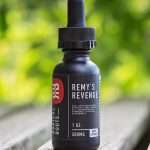Small Intestinal Bacterial Overgrowth (SIBO) is a complex gastrointestinal condition marked by an excessive number of bacteria in the small intestine.
This overgrowth can trigger symptoms such as bloating, gas, diarrhea, and nutrient deficiencies.
While medical interventions and dietary adjustments are cornerstones of SIBO management, dietary supplements like Probiotics, L-Glutamine, Digestive Enzymes, Peppermint Oil, and Garlic might offer added support.
Let’s explore each of these supplements.
1. Probiotics
Probiotics are beneficial bacteria that may assist in maintaining a balanced gut microbiota. Research suggests that they can contribute to managing SIBO by restoring a healthy bacteria balance in the gut1.
2. L-Glutamine
L-Glutamine is an amino acid known for its crucial role in intestinal health. It helps preserve the integrity of the intestinal barrier, often compromised in SIBO, suggesting that L-Glutamine supplementation could potentially support gut healing and function2.
Remy’s Revenge Tincture
Dynamic support for the brain and the body. This powerful formula can help settle dis-harmonies in the body that present as “wind disorders.”
3. Digestive Enzymes
Digestive enzymes facilitate the breakdown of food, leading to more effective digestion and nutrient absorption. For individuals with SIBO, these enzymes may help alleviate digestive discomfort associated with food breakdown and absorption3.
4. Peppermint Oil
Peppermint oil has been used traditionally for various digestive disorders. Its antimicrobial properties may help reduce bacteria overgrowth, and its natural antispasmodic effect can aid in relieving abdominal discomfort, common in SIBO4.
5. Garlic
Garlic has been found to have antimicrobial properties that can be beneficial for gut health. Some studies suggest that garlic may help reduce bacterial overgrowth and relieve symptoms associated with SIBO5.
Conclusion
SIBO management is a multifaceted challenge. Medical treatment and dietary adjustments play a critical role, but supplements like Probiotics, L-Glutamine, Digestive Enzymes, Peppermint Oil, and Garlic may provide valuable support. Always consult with a healthcare professional before starting any new supplement regimen.
References
Remember, while these supplements show potential in aiding SIBO management, they should not replace medical advice or treatment. Always consult with a healthcare professional before starting any new supplement regimen.
Footnotes
- Furnari, M., Parodi, A., Gemignani, L., Giannini, E. G., Marenco, S., Savarino, E., & Assandri, L. (2012). Clinical trial: the combination of rifaximin with partially hydrolysed guar gum is more effective than rifaximin alone in eradicating small intestinal bacterial overgrowth. Alimentary pharmacology & therapeutics, 36(9), 925-933. ↩
- Zhou, Q., & Verne, G. N. (2011). New insights into visceral hypersensitivity — clinical implications in IBS. Nature Reviews Gastroenterology & Hepatology, 8(6), 349-355. ↩
- Ianiro, G., Pecere, S., Giorgio, V., Gasbarrini, A., & Cammarota, G. (2016). Digestive enzyme supplementation in gastrointestinal diseases. Current Drug Metabolism, 17(2), 187-193. ↩
- Khanna, R., MacDonald, J. K., & Levesque, B. G. (2014). Peppermint oil for the treatment of irritable bowel syndrome: a systematic review and meta-analysis. Journal of clinical gastroenterology, 48(6), 505-512. ↩
- Nillert, N., Pannangrong, W., Welbat, J. U., Chaijaroonkhanarak, W., Sripanidkulchai, K., & Sripanidkulchai, B. (2017). Effects of aged garlic extract on cholinergic, glutamatergic and GABAergic systems with regard to cognitive impairment in Aβ-induced rats. Nutrients, 9(7), 686. ↩






